Enhancing problem-solving skills Normal Worksheets for Ages 3-7
6 filtered results
-
From - To
Boost your child's problem-solving skills with our Normal Worksheets designed for ages 3-7. At Kids Academy, we provide engaging and educational activities that challenge young minds and enhance critical thinking. Our thoughtfully crafted worksheets cover various subjects, from math to logic puzzles, fostering cognitive development and creativity. Whether at home or in the classroom, these printables are perfect for supporting early learning and preparing children for future academic success. Unlock your child's potential with fun and interactive worksheets tailored to develop essential problem-solving abilities. Download today and watch your child thrive!
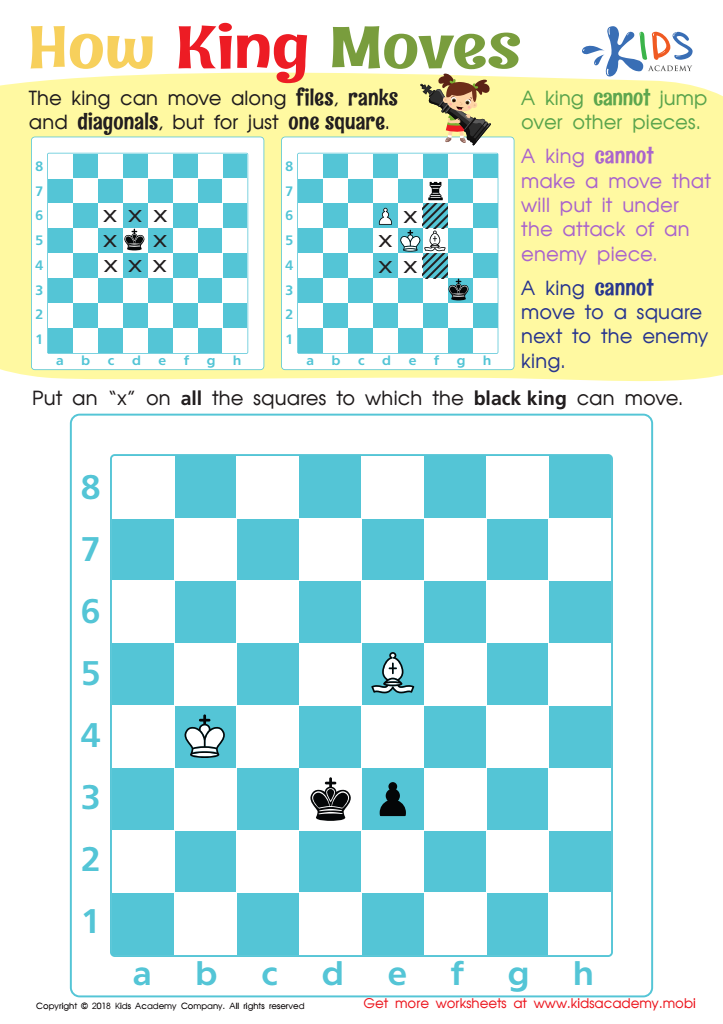

How King Moves Worksheet
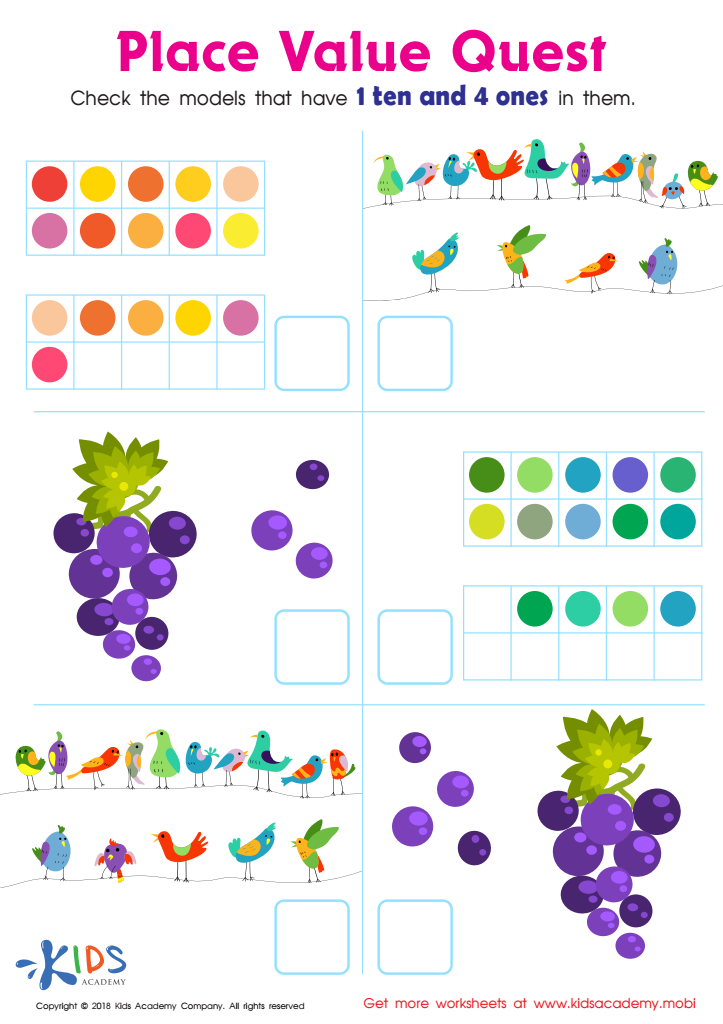

Place Value Quest Worksheet
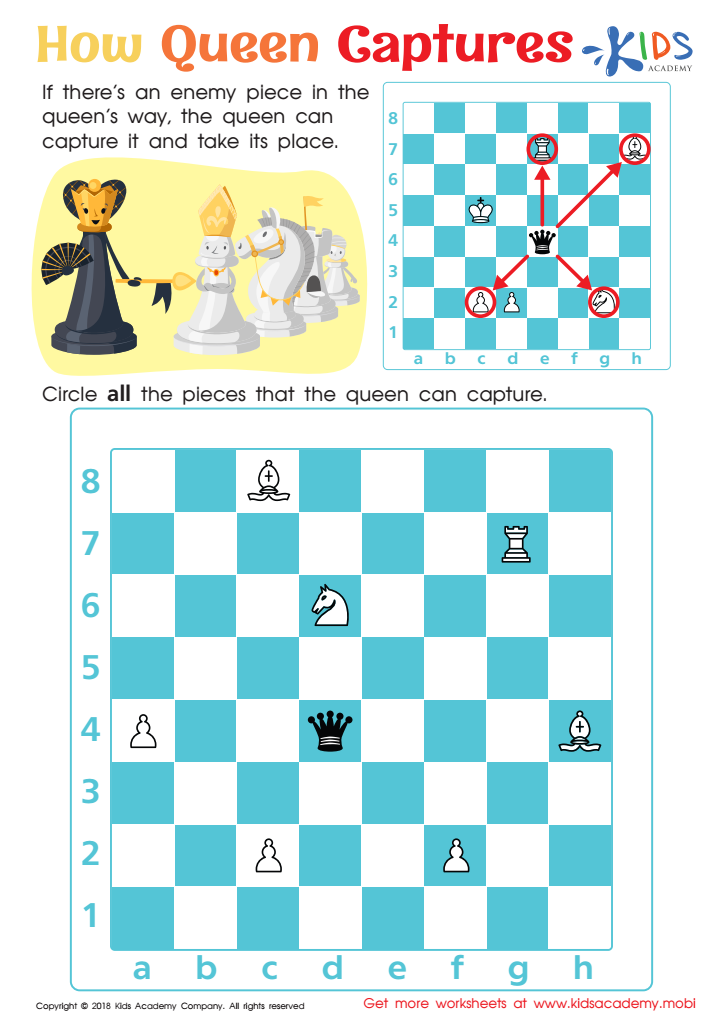

How Queen Captures Worksheet
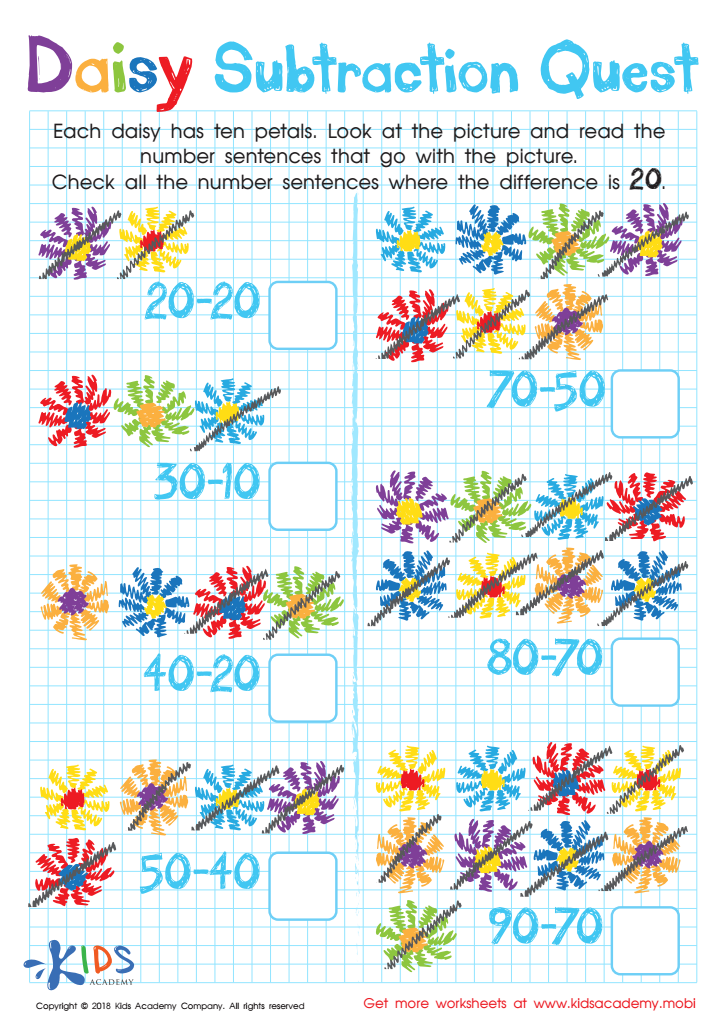

Daisy Subtraction Quest Worksheet
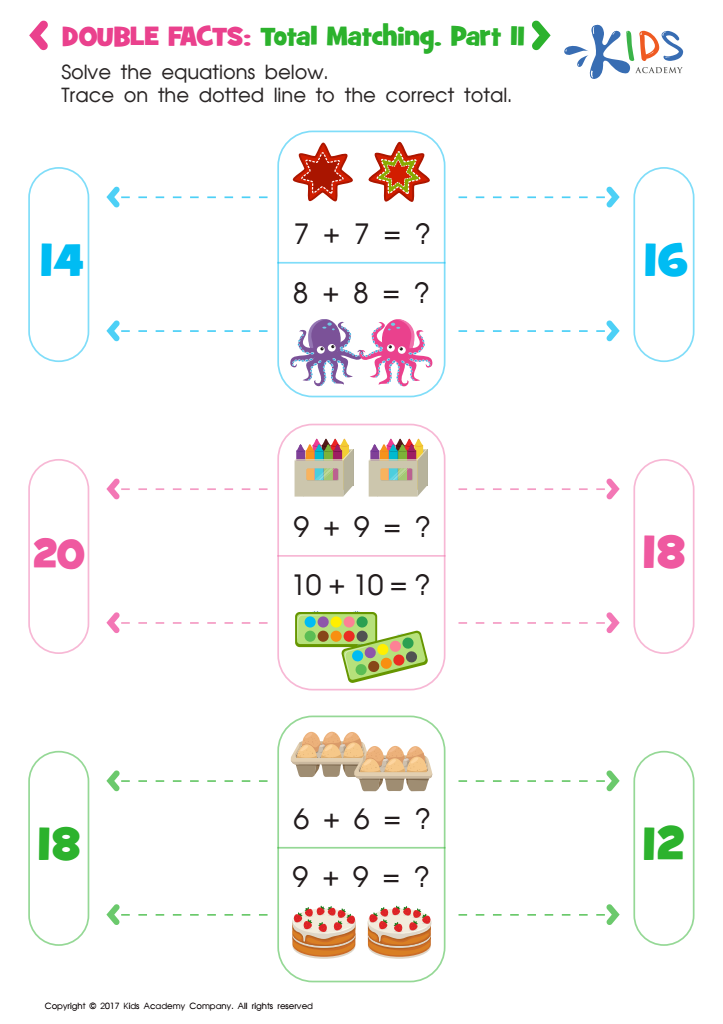

Double Facts: Total Matching 2 Worksheet
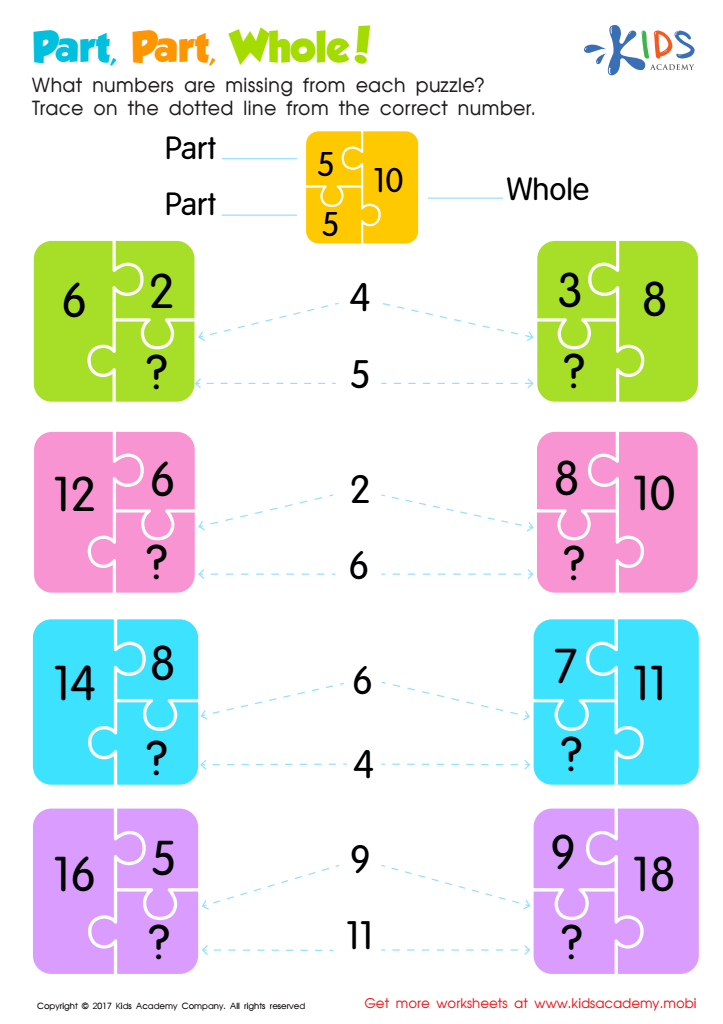

Part, Part, Whole Worksheet
Enhancing problem-solving skills in children aged 3-7 is vital for their cognitive and emotional development. At this early stage, children's brains are highly plastic, meaning they are more susceptible to learning and forming new neural connections. By engaging in problem-solving activities, children develop critical thinking skills that are foundational for their academic and social success. These skills help them navigate challenges, make decisions, and understand cause-and-effect relationships.
From a social perspective, problem-solving emphasizes empathy and cooperation. Working in groups, children learn to listen to others' ideas, develop patience, and communicate effectively. This fosters a sense of community and improves their ability to handle conflicts. When children learn to overcome obstacles, they gain self-confidence and resilience, feeling more competent and independent.
For parents and teachers, fostering these skills can make learning more enjoyable and effective. It enhances a child's ability to understand and apply concepts in subjects like mathematics, science, and reading. This early focus on problem-solving can thus set the stage for lifelong learning and adaptability, equipping children with the tools they need to succeed in an ever-changing world.
In essence, investing time and energy in enhancing problem-solving skills isn't just about solving immediate issues; it's about giving children the keys to unlock endless opportunities for growth and learning.
 Assign to My Students
Assign to My Students




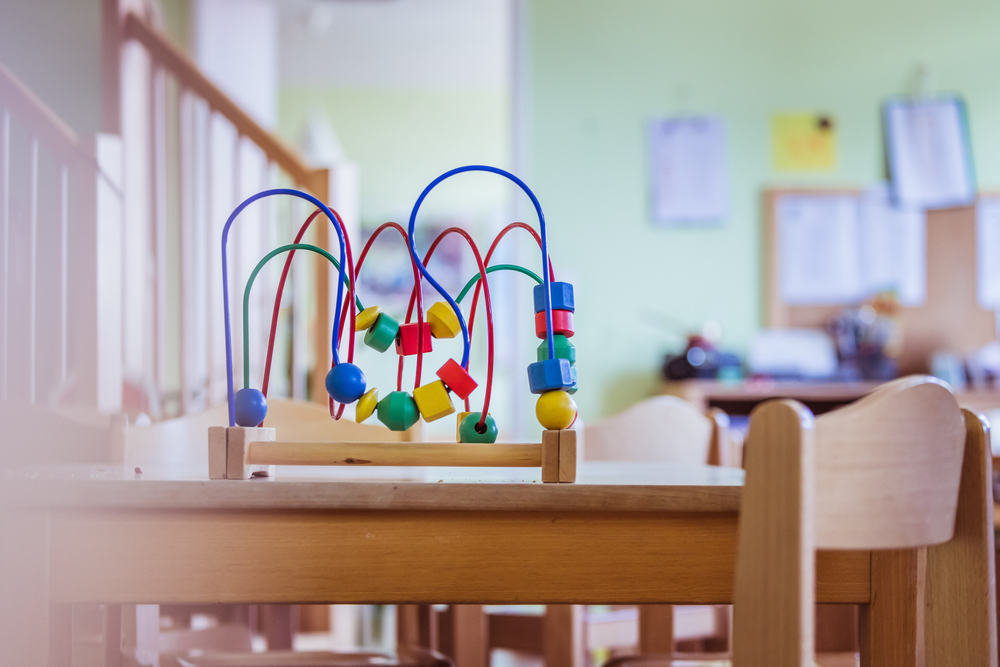

.jpg)








